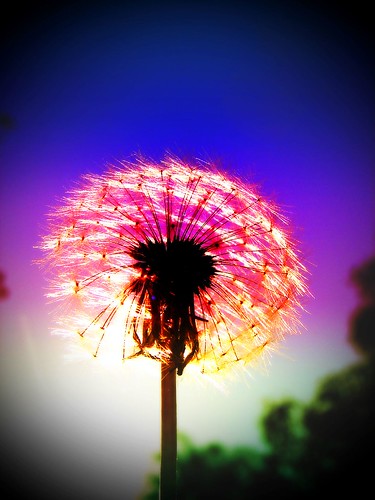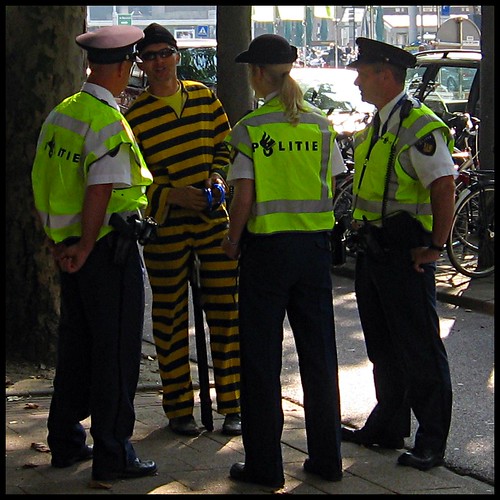I grew up in a neighborhood of immigrants. One year, the guy across the street planted his entire front yard in potatoes. His daughter, not being from the Old Country, was mortified with shame. It was UnAmerican to use a front yard like that. He never saw her point of view but, not wanting to embarrass her, he went back to growing grass like everyone else.
Sometimes convention is habit that's hardened into prejudice, and prejudices cannot be addressed using logic. Surprisingly enough, some vegetables fall into this category. They provoke illogical responses -- especially this one vegetable. I mean, I could say that this vegetable contains the fountain of youth and people would still scoff.
I think the conversation would go something like this:
Me: It's really healthy and full of vitamins .
Friend: Who cares! It's a weed!
Me: It's easy to grow your own -- fresh, local, and organic.
Friend: Who cares! It's a weed!
Me: It can help you lose weight.
Friend: Who cares! It's a --- hmmmn, wait a minute. I don't want to be too narrow minded here. Can you tell me more?
Dandelion leaves fall into the category of healthy green leafy veggies.
What were you saying about it helping weight loss?
They grow, as most people know to their regret, almost any where.
You mentioned weight loss a minute ago?
Not only are they in the top 4 green vegetables in overall nutritional value (USDA Bulletin #8, "Composition of Foods, Haytowitz and Matthews 1984), their diuretic properties work against excess water retention. Most diurectics have the serious drawback of causing you to lose potassium, but dandelions have such a high level of potassium in the leaves that you don't end up with a deficit.
Who cares about all that so long as I'm thin, thin, thin!
All right, you can say it's a weed. But not just a weed. It's a nutritious weed. (Yes, unless you spray it with evil poisons, but those poisons would be bad for you regardless of the food they were sprayed on -- even if you were eating a cupcake.) Dandelions are a "very good source of Dietary Fiber, Vitamin A, Vitamin C, Vitamin E (Alpha Tocopherol), Vitamin K, Thiamin, Riboflavin, Vitamin B6, Calcium, Iron, Potassium and Manganese."
Note: people take dandelion pills or tinctures for medicinal benefits. (For example, it is used as a traditional medicine for liver problems.) Using concentrated amounts of dandelion extract can have a powerful effect on your system, not always a good idea if you're taking other medications as the same time.
That's not what I'm talking about. I am focused here on eating green leafy vegetables. You take anything in concentrated doses and you'll want to be careful. Ingesting dandelion leaves in a salad is much safer. If you're just concerned with eating a vegetable that's good for you, this is it.
A cup of dandelion greens, 25 calories, gets you:
112% of your daily need for vitamin A
30% of vitamin C
585 friggin' % of vitamin K
24 mg Omega-3
144 mg Omega-6
Dandelion are supposed to have medicinal properties as well. The official name of the plant is Taraxacum officinale, which is fancy language for the "Official Remedy for Disorders." Most of its reputation as a tonic is based on traditional European folklore. That doesn't mean the claims are false, but I'm conditioned to want to hear about health from people in white coats.
There isn't as much scientific research out there as I would like re: its tonic properties. I did find a study that claimed dandelions would help with lipid metabolism of diabetics. Mostly what I found was vague but quite positive. "The well-known pharmacological effects, together with the low toxicity, suggested by other authors, make this underutilized plant a good candidate for use as food source."
All the experts on the web and in upscale recipe books say pick the tender young leaves. However, if you're trying to follow the folklore route and eat this stuff to help your liver, they say you should include some of the older, more bitter-tasting leaves. Southern cuisine pairs dandelion leaves with bacon, Asian cuisine combines it with salty-tasting recipes.
Also, you can use the root to make tea. "The tea made of it is of medicinal importance, has a stomachic, tonic, diuretic, aperient, digestion stimulating, antibilious, blood purifying effect."
Incidentally, another weed that people spend a lot of time and effort trying to get rid of is purslane (Portulaca oleracea). Did you know it is the highest vegetable-based source of omega-3s?
If you want to eat a healthy diet without breaking the bank, maybe it's time to stop thinking of all weeds as an enemy. (Some weeds are definitely still in the enemy category -- I haven't found a single source that claims poison oak has a redeeming quality.)
What, you're still reading this? You haven't given up in disgust and clicked on Bubbleshooter instead? I'm impressed. To most people, the idea of eating weeds that grow in a backyard sounds as absurd as planting potatoes instead of a lawn.
I think it's the same mindset as growing potatoes on the lawn. Eating dandelions might be logical, it might be practical, it might be healthy.
Plus it could help you lose weight! Don't forget the important stuff!
But if you ate it, people would think you weird. Why is this? People don't value something if it's free? You can buy dandelion leaves in upscale trendy grocery stores. Does that make the veggie more appealing?
I think this prejudice falls into the category of "Just Because." Can't see another reason for it. (If you can, please let me know!)
I'm not planning to start a campaign, People for the Eating of Dandelions Dammit (PEDD). I'm just curious -- what's your reason for avoiding them?
Caveats: I haven't been able to verify this, but I've read you should avoid dandelions if you have allergies to latex or daisies. And yes, yes, obviously, avoid it if you're not sure the area has not been sprayed. While supposedly quite helpful for people in the early stages of liver and gall bladder disorders, dandelions are in check-with-the-doc territory if you have gall stones. The bitter elements increase the amount of bile produced.

































